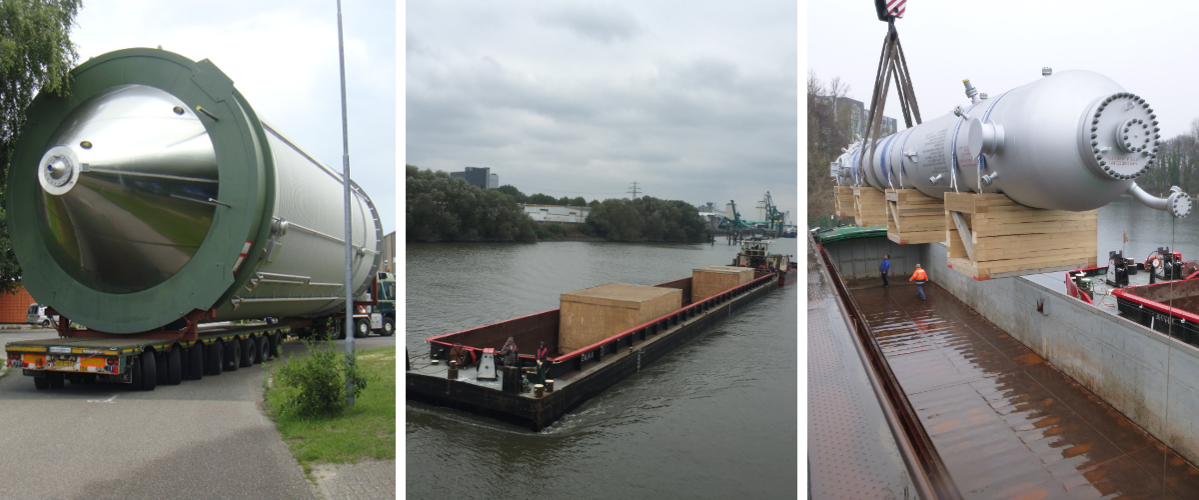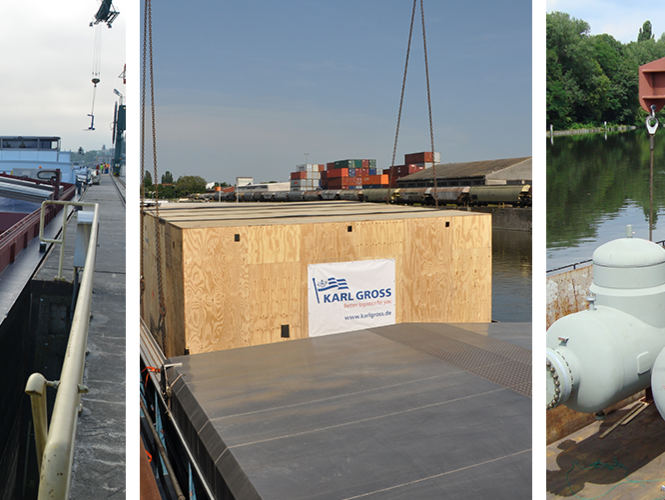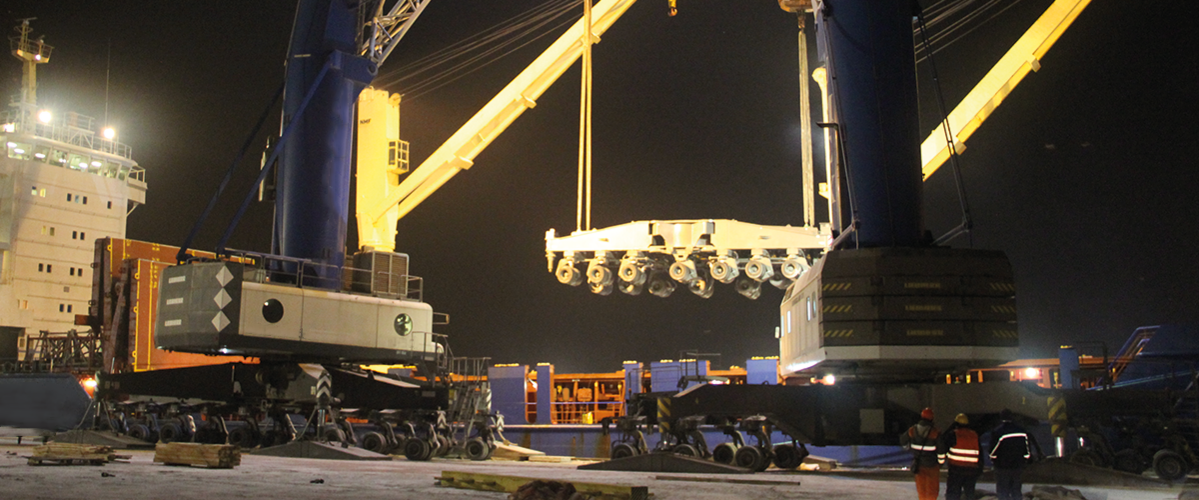Big, heavy or both at the same time – if goods exceed the ‘usual’ loading dimensions for road haulage, a transport can be complex and expensive, too. That is why inland waterway transport solutions are important for the Karl Gross logistics specialists.
They know the advantages and make use of the European net of inland waterways to create tailor-made transport solutions – especially to inland destinations like Austria or adjoining Eastern European countries such as the Czech Republic.
The European net of inland waterways is extensive and provides excellent access to international seaports – no matter which direction. “For performing pre and on-carriages for project cargo shipments to international seaports, barge traffic can be a good alternative to road haulage – depending, of course, on the location of the shipper and/or consignee”, Fabian Schmid from our Karl Gross office in Regensburg explains. “Also for our inland customers – e.g. in Southern or Eastern Europe – inland waterway transportation can be an interesting alternative to road haulage. Especially for voluminous cargo, it may even be the only feasible transport solution.”
"Connecting line" Danube
The Danube is an extensive connection to many countrys.
Being directly located at the Danube port area – Europe’s second largest river – our colleagues in Regensburg know about the manifold opportunities of inland waterway transportation. “In the East, the Danube connects ten countries whereby the river is navigable on almost 2.420 km. The Main-Danube canal and the Rhine connect via waterway the North Sea with the Black Sea”, Fabian Schmid explains.
North east connection across the Elbe
The river Elbe can be considered as good connection between the North Range – the most important international seaports at the North Sea coast – and the Czech Republic. The ports of Melnik (nearby Prague) and Lovosice are two important locations on the Eastern side, when it comes to inland waterway transportation for project cargo.

Some bottlenecks can or must be transshiped by barge.
For our project cargo specialists, the advantages of inland waterway transportation are at hand: road constructions, traffic, narrow streets, weekend and night driving bans and often long waiting times for transport permits and/or high costs for traffic control measures and police escort can be disregarded. “This can be cost-effective”, our project cargo specialist Fabian Schmid explains. And there is more: barges are a comparatively ‘gentle’ transport solution, as the loaded cargo is generally not exposed to external forces such as acceleration.
But: a transport section on the road is mostly inevitable. Depending on the volume and size of the shipment as well as the location of shipper and consignee, precise planning is important for the pre and on-carriage to and from the inland port of loading respectively the port of discharge. “In general, it is advisable to evaluate transport options at an early stage”, Fabian Schmidt says. "The weather can be a decisive factor. With heat waves during summer, especially the water levels of the inland waterways must be kept in mind. If they drop seriously, it can lead to delays or re-routings."
Karl Gross offers preliminary route and feasibility studies and is happy to help creating tailor-made logistics solutions for you.




